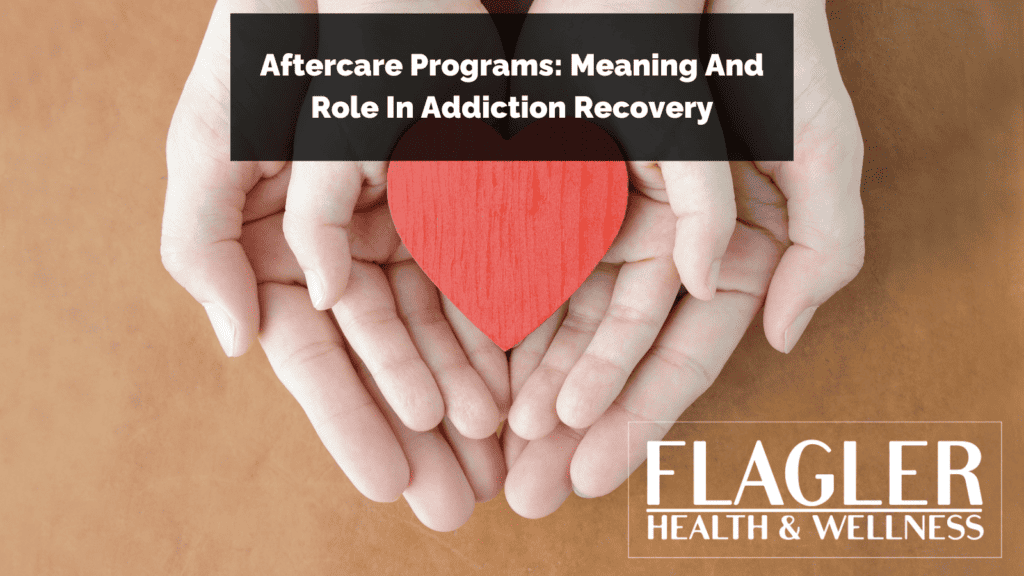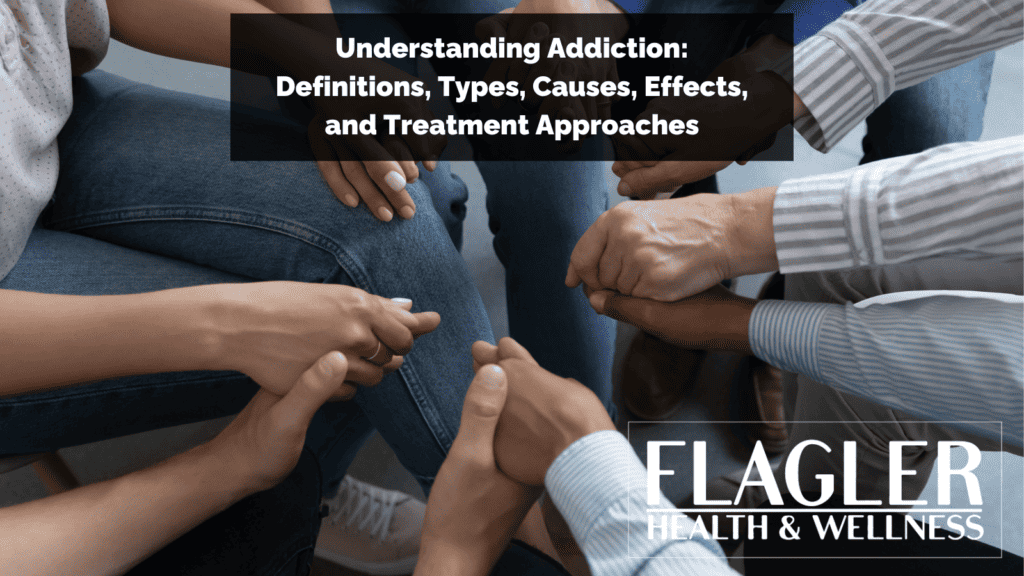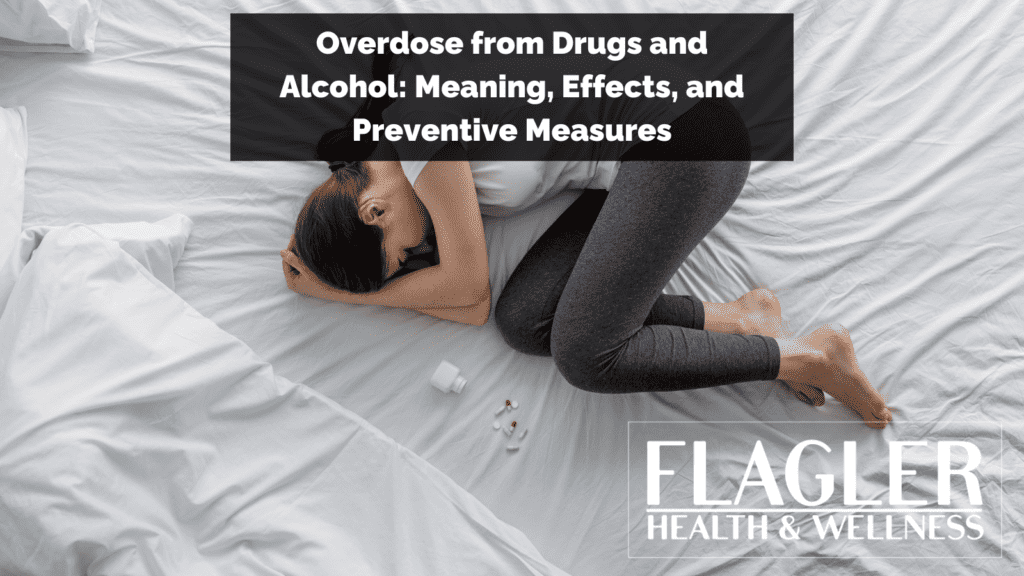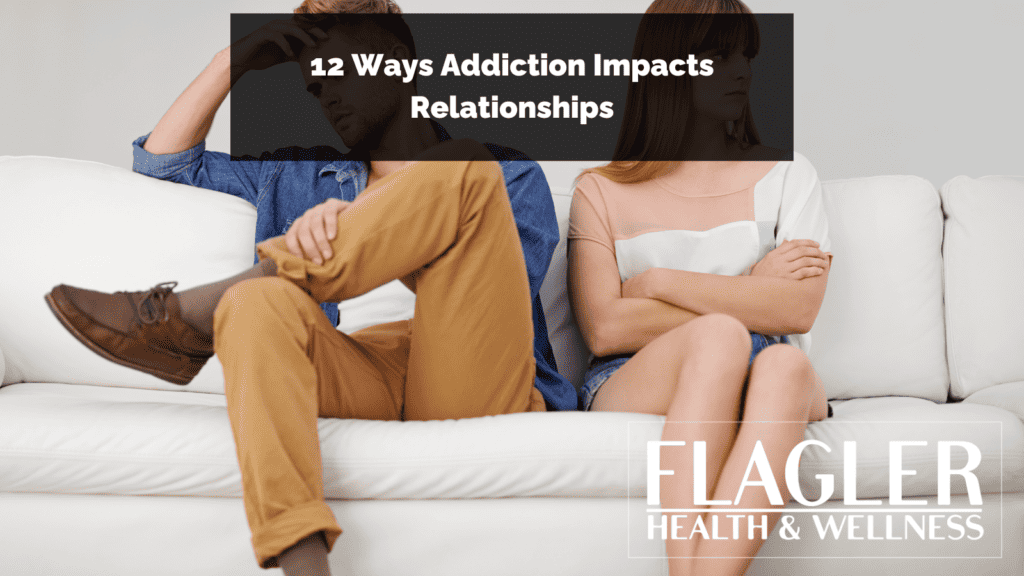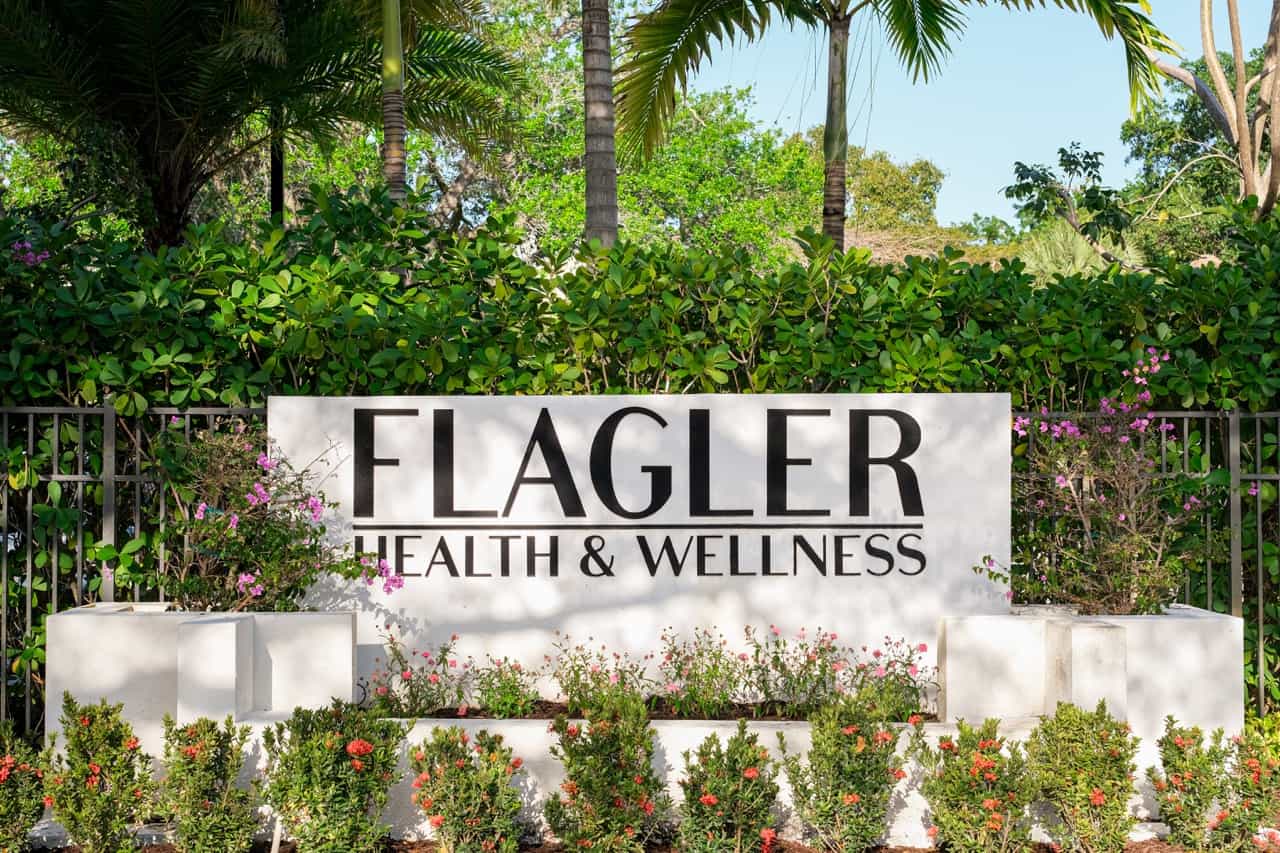Aftercare programs refers to the ongoing support and treatment provided to individuals after they complete an initial phase of addiction recovery, such as detoxification or a residential treatment program. Aftercare programs play a crucial role in sustaining long-term recovery and preventing relapse.
Typically, aftercare program includes a combination of individual or group therapy, support group meetings, and sometimes continued medication-assisted treatment (MAT).
The Substance Abuse and Mental Health Services Administration (SAMHSA) highlights the importance of aftercare in providing a safety net during the vulnerable transition period from structured treatment back to daily life. Aftercare programs are tailored to address the unique needs of each individual, helping them integrate the skills learned during treatment into their everyday routine, maintaining sobriety, and managing triggers in a real-world context. The implementation of these programs is a recognition of the chronic nature of addiction and the necessity for ongoing support to ensure successful, long-term recovery.
The Role Of Aftercare in Addiction Recovery
The role of aftercare in addiction recovery has to do with ensuring that the transition back into everyday life is as smooth and sustainable as possible. Here are some key reasons to participate in an aftercare program:
- Continuous Support: Aftercare programs provide ongoing support to people that have completed rehab programs, helping them navigate the challenges of maintaining sobriety in their daily lives. This support is very important during the early stages of recovery when individuals are most vulnerable to relapse.
- Skill Reinforcement: Aftercare reinforces the coping strategies and skills learned during initial treatment, making it easier for individuals to apply these strategies in real-life situations.
- Therapy and Counseling: Regular therapy sessions, whether individual or group-based, are a cornerstone of aftercare programs. They offer a space for individuals to process their experiences and receive guidance.
- Support Groups: Participation in support groups like Alcoholics Anonymous or Narcotics Anonymous provides a community of peers who understand the challenges of recovery, offering mutual support and accountability.
- Medication Management: For some people in recovery, continued medication-assisted treatment (MAT) is an integral part of aftercare, helping to manage cravings and withdrawal symptoms, and maintain their sobriety.
- Holistic Wellness: Aftercare programs often address broader aspects of well-being, including mental health, physical health, social relationships, and occupational or educational ambitions, supporting a holistic approach to recovery.
It is important to highlight the importance of aftercare in the addiction recovery process. Not only is aftercare support provided by many treatment centers, but it also plays a crucial role in preventing relapse and enhancing the overall quality of life for people in recovery.
Types of Aftercare Programs
Aftercare programs in addiction recovery come in various formats, each designed to support the individual’s journey towards lasting sobriety. Formal aftercare programs include outpatient and alumni programs provided by treatment centers, while informal aftercare would involve creating a program of your own using different resources and tools. Here is a closer look at the two:
Outpatient and Alumni Programs
Outpatient and alumni programs are integral components of comprehensive addiction recovery, providing essential support structures for individuals transitioning from more intensive treatment phases. These programs are designed to support the ongoing recovery process, offering flexibility and community engagement to reinforce long-term sobriety.
Outpatient Programs
Outpatient programs offer a therapeutic framework that allows individuals to integrate their recovery process with their daily lives. These programs are particularly beneficial for those who have completed an inpatient program or for whom full-time treatment is not necessary. Key features of outpatient programs include:
- Flexible Scheduling: Outpatient programs are designed to accommodate the individual’s work, school, and family commitments, allowing them to receive treatment without stepping away from their daily responsibilities.
- Comprehensive Therapy Options: Participants have access to a wide range of therapy modalities, including individual counseling, group therapy, and family therapy sessions. These sessions aim to address the psychological aspects of addiction, improve coping strategies, and facilitate personal growth.
- Medication Management: For those with a dual diagnosis or those who require medication to manage withdrawal symptoms or cravings, outpatient programs often provide ongoing medical oversight and medication management.
- Continued Support: These programs offer a continuum of care that bridges the gap between intensive treatment and full independence, helping individuals to gradually build their resilience and autonomy in recovery.
Alumni Programs
Alumni programs are designed to maintain the bond between treatment centers and their former patients, creating a lasting community of support. These programs play a critical role in relapse prevention and personal development post-treatment. Highlights of alumni programs include:
- Regular Meetings and Social Events: Alumni programs organize regular meetings, workshops, and social gatherings, allowing former patients to stay connected with their peers and the treatment community. These events provide a safe space for sharing experiences, celebrating milestones, and discussing challenges.
- Mentorship Opportunities: A unique aspect of alumni programs is the opportunity for more experienced alumni to mentor new members or current patients as a sponsor and role model. This mentorship builds a sense of purpose and belonging, offering mutual support and guidance.
- Network of Support: The creation of a supportive network of friendships is a cornerstone of alumni programs. These relationships are built on mutual respect, shared experiences, and an understanding of the challenges of addiction recovery. This network serves as a critical safety net, offering encouragement and support during difficult times.
- Lifelong Connection: Alumni programs emphasize the lifelong journey of recovery, providing ongoing resources, education, and support. Participation in these programs reinforces the individual’s commitment to sobriety and personal growth.
Both outpatient and alumni programs underscore the importance of ongoing support and community in the recovery process. By offering a blend of professional guidance, peer support, and flexible care, these programs equip individuals with the tools and networks needed to navigate the complexities of life after addiction treatment.
Informal
- Self-Help and Support Groups: Groups like Alcoholics Anonymous (AA) or Narcotics Anonymous (NA) provide peer support and are fundamental to many individuals’ aftercare. These groups offer a platform for sharing experiences and strategies for maintaining sobriety.
- Family and Individual Counseling: Ongoing counseling can help address underlying issues related to addiction and provide support in developing coping strategies. Family counseling can also play a vital role in rebuilding relationships and establishing a supportive home environment.
- Lifestyle Changes: Engaging in healthy activities such as exercise, hobbies, and volunteer work can be an informal but essential part of aftercare. These activities help individuals find new purpose and joy in sobriety, reducing the likelihood of relapse.
Each of these aftercare approaches plays a unique role in supporting individuals in their journey of recovery, offering tailored support to meet their specific needs and circumstances.
How Long Should Someone Participate in An Aftercare Program?
It depends on the individual. Aftercare programs can last anywhere from a few months to a year or more. The goal is to provide flexible, ongoing support tailored to the individual’s stage of recovery. An addiction professional can help guide you in determining the appropriate level of support you can benefit from at a given time.
Can Aftercare Programs Prevent Relapse?
Yes, they can help prevent relapse, but attending one is not a guarantee that a relapse won’t occur. Aftercare programs significantly reduce the risk of relapse by providing ongoing support and resources during the vulnerable transition from intensive treatment to everyday life.
Are Aftercare Programs Mandatory for Successful Recovery?
No. Although aftercare programs are not mandatory for successful long term recovery, they are highly recommended. Research and clinical experience prove that individuals who engage in aftercare services have better outcomes in terms of reduced relapse rates and improved overall well-being.
How We Can Help You
Recognizing the need for help is the first step on the road to recovery. The second is to find the right treatment program that suits your needs. At Flagler, we offer specialized programs that are tailored to the individual, ensuring the highest chance of your success. Remember, seeking help is not a sign of weakness, but rather one of strength and self-awareness. Reach out to us today to see how we can help you on your journey to a brighter, substance-free future.
Share This Post

